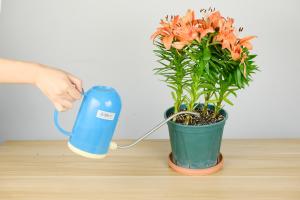How to Prune Patio Tomato Plants
If you want to grow a thriving patio tomato plant, one of the most important steps is pruning. Pruning helps to improve air circulation, encourage the growth of new fruit, and prevent disease. However, before pruning your patio tomato plant, it is essential to know a few tips.
When to Prune Patio Tomato Plants
The best time to prune a patio tomato plant is in the early morning or late afternoon, when temperatures are cooler to prevent the leaves from wilting. You should prune your patio tomato plant when it is at least 1 foot tall, and when it has developed its first set of true leaves. This usually occurs about 4 to 6 weeks after planting.
Tools You'll Need to Prune Patio Tomato Plants
Before you start pruning your patio tomato plant, you will need a few tools, including sharp scissors or pruning shears, gloves, and a container to collect the pruned branches. It is also essential to disinfect your tools in a 10 percent bleach solution or rubbing alcohol to prevent the spread of disease.
How to Prune Patio Tomato Plants
Begin by removing the lower leaves of your patio tomato plant, leaving only the top few sets of leaves. This will help improve air circulation and keep the leaves dry. Pinch off any suckers that develop in the "V" shape between the stem and a branch, as these suckers can develop into new stems and take energy away from fruit production. Prune any broken, diseased or yellowing branches as well.
How Much to Prune Patio Tomato Plants
When pruning your patio tomato plant, it is essential not to prune too much or too little. Removing more than 1/3 of the plant can shock it, causing it to stop growing altogether. To ensure that the plant is not damaged, remove only the leaves and branches that are yellowing, diseased or dead. If you are unsure how much to prune, start with only a few branches at a time and monitor the plant's response.
The Benefits of Pruning Patio Tomato Plants
Pruning your patio tomato plant comes with numerous benefits. Proper pruning can improve air circulation, reduce the risk of disease, increase fruit production, and improve the quality of your tomatoes. With regular pruning, your patio tomato plant can grow into a healthy and thriving specimen that produces tasty and nutritious fruit all summer long.
Conclusion
Pruning patio tomato plants may seem intimidating, but it is a simple and essential process that helps to ensure a healthy and productive plant. Remember to prune in the early morning or late afternoon, use disinfected tools and only remove the leaves and branches that are diseased, dying or dead. By following these simple tips, you can grow a thriving patio tomato plant that produces delicious fruit all season long.

 how many times do yo...
how many times do yo... how many planted tre...
how many planted tre... how many pine trees ...
how many pine trees ... how many pecan trees...
how many pecan trees... how many plants comp...
how many plants comp... how many plants can ...
how many plants can ... how many plants and ...
how many plants and ... how many pepper plan...
how many pepper plan...





























